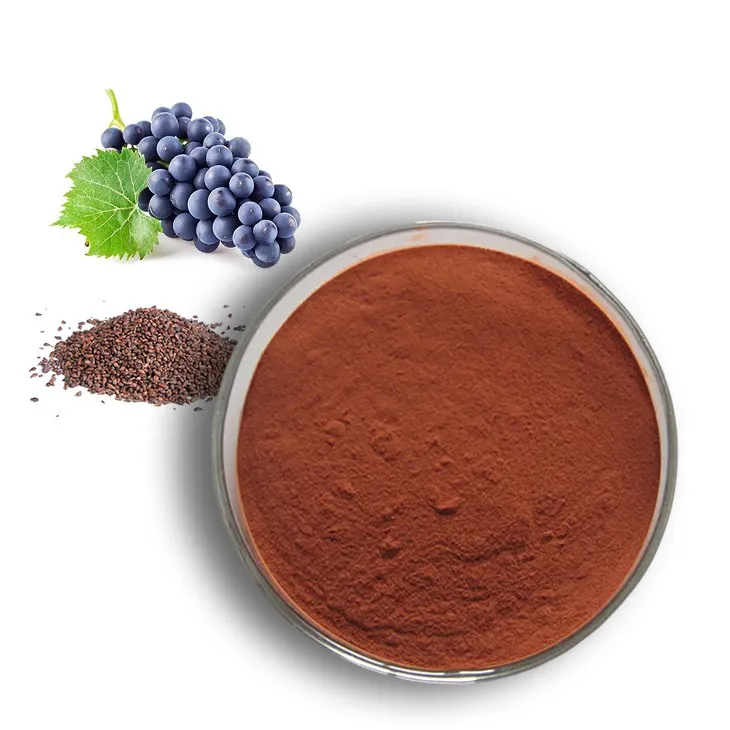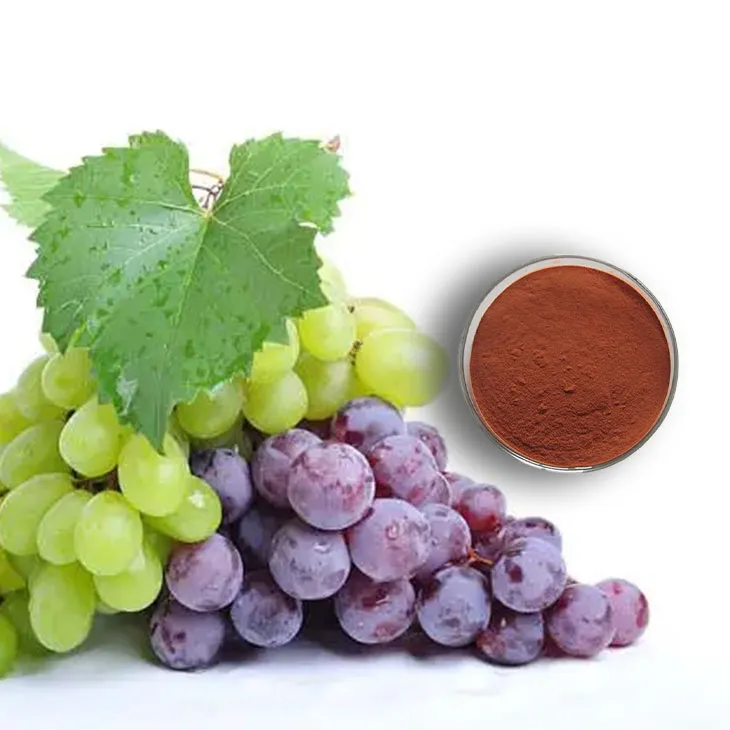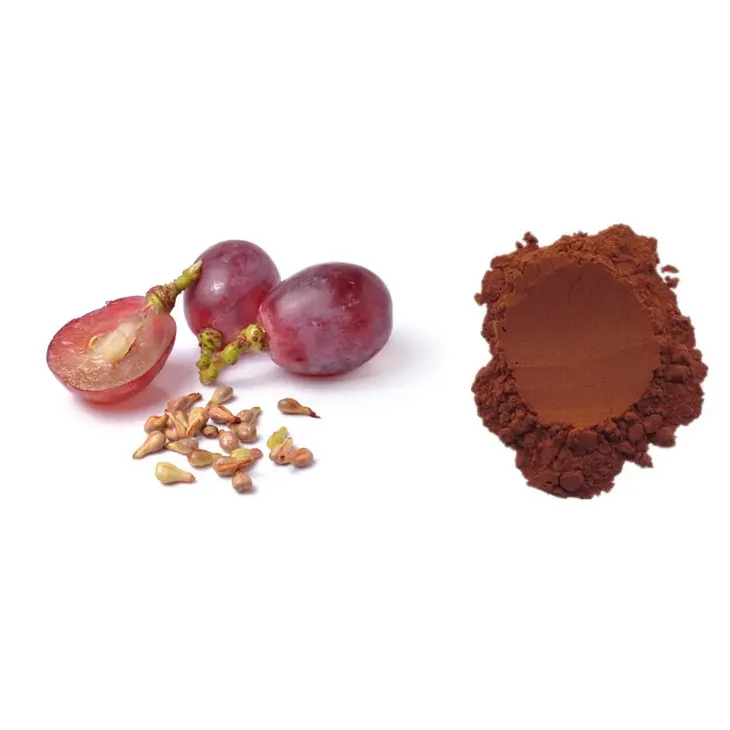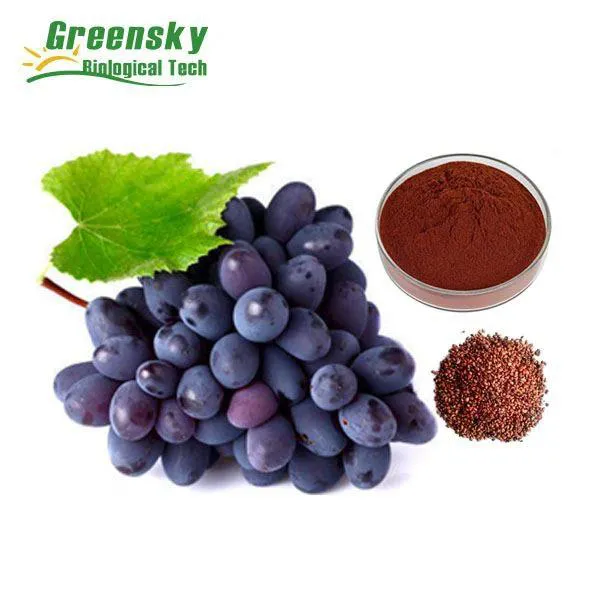- 0086-571-85302990
- sales@greenskybio.com
Natural Grape Seed Extract: Should You Use It for Skin Care?
2024-11-12

1. Introduction
In the world of skin care, the search for natural and effective ingredients is never - ending. Grape Seed Extract has emerged as a potential candidate with a host of benefits for the skin. This article will explore the various aspects of Grape Seed Extract in skin care, including its composition, potential benefits, and areas where more research is required.

2. What is Grape Seed Extract?
Grape seed extract is derived from the seeds of grapes (Vitis vinifera). It is rich in bioactive compounds, most notably proanthocyanidins, which are a type of flavonoid. These proanthocyanidins are powerful antioxidants that play a crucial role in protecting the skin from damage.

3. Antioxidant Properties and Skin Health
3.1 How Antioxidants Work
Antioxidants are substances that can prevent or slow damage to cells caused by free radicals. Free radicals are unstable molecules that are produced in the body as a result of normal metabolic processes, as well as from external factors such as pollution, UV radiation, and smoking. When free radicals interact with cells in the skin, they can cause oxidative stress, which can lead to premature aging, wrinkles, and a dull complexion.
Grape seed extract's antioxidants work by neutralizing these free radicals. The proanthocyanidins in grape seed extract can donate electrons to free radicals, thereby stabilizing them and preventing them from causing further damage to the skin cells.
3.2 Impact on Skin Aging
As we age, our skin's natural antioxidant defenses decline. This makes it more vulnerable to the effects of free radicals. By using skin care products containing grape seed extract, it is possible to boost the skin's antioxidant levels. This can help in reducing the appearance of fine lines and wrinkles, improving skin elasticity, and giving the skin a more youthful and radiant look.

4. Skin Repair and Renewal
Grape seed extract also has properties that aid in skin repair and renewal. It can stimulate the production of collagen and elastin, two important proteins in the skin. Collagen provides structural support to the skin, while elastin gives it elasticity.
When the skin is damaged, for example, from a cut or a burn, grape seed extract can help in the healing process. It can also be beneficial for those with skin conditions that affect the skin's integrity, such as eczema or psoriasis, by promoting the regeneration of healthy skin cells.

5. Grape Seed Extract and Acne - Prone Skin
5.1 Anti - Inflammatory Effects
One of the reasons why grape seed extract might be effective for acne - prone skin is its anti - inflammatory properties. Acne is often associated with inflammation in the skin, which can lead to redness, swelling, and the formation of pimples. The antioxidants in grape seed extract can help to reduce this inflammation, calming the skin and potentially reducing the severity of acne breakouts.
5.2 Antibacterial Activity
Some studies have also suggested that grape seed extract may have antibacterial activity. The bacteria Propionibacterium acnes is often implicated in the development of acne. Grape seed extract may be able to inhibit the growth of this bacteria, further helping to combat acne.

6. How to Incorporate Grape Seed Extract into Skin Care
6.1 Topical Applications
There are many skin care products available that contain grape seed extract. These include creams, lotions, serums, and masks. When choosing a product, it is important to look for one that contains a high concentration of pure grape seed extract. It is also advisable to do a patch test on a small area of skin before using a new product to check for any allergic reactions.
6.2 Dietary Supplements
In addition to topical applications, grape seed extract can also be taken as a dietary supplement. However, it is important to note that taking supplements should be done under the guidance of a healthcare professional, as excessive intake may have potential side effects.
7. Potential Side Effects
While grape seed extract is generally considered safe for most people, there are some potential side effects to be aware of. Some individuals may experience allergic reactions, such as skin rashes, itching, or swelling. In rare cases, high doses of grape seed extract may cause gastrointestinal problems, such as nausea, vomiting, or diarrhea.
8. The Need for More Research
Although there is evidence to suggest that grape seed extract can be beneficial for skin care, more research is needed. In particular, there is a lack of long - term studies on its effects on the skin. Additionally, the optimal concentration and formulation of grape seed extract for different skin types and conditions need to be determined.
For example, while it may be effective for some people with acne - prone skin, it is not clear whether it will work for everyone. Similarly, more research is needed to understand how it interacts with other skin care ingredients.
9. Conclusion
Grape seed extract shows great promise as an ingredient in skin care. Its antioxidant, anti - inflammatory, and skin - repairing properties make it a potentially valuable addition to skin care regimens. However, due to the need for more research and the potential for side effects, it is important to approach its use with caution. When considering using grape seed extract for skin care, it is advisable to consult with a dermatologist or other healthcare professional.
FAQ:
What are the benefits of Natural grape seed extract for skin?
Natural grape seed extract has high antioxidant content. It helps in skin repair and renewal. It may also be effective for acne - prone skin.
Is Natural grape seed extract safe for all skin types?
While it generally has potential benefits, more research is needed on its long - term effects. So it's not certain if it's safe for all skin types. Some people may be allergic or have adverse reactions.
How can I use natural grape seed extract for skin care?
At present, more research on its optimal usage is required. However, it may be found in some skin care products such as creams or serums. Follow the product instructions if you choose to use products containing it.
Can natural grape seed extract reduce wrinkles?
Due to its antioxidant properties which help in skin repair and renewal, it may potentially have some effect on reducing wrinkles. But there is not enough conclusive evidence yet.
Does natural grape seed extract have any side effects on the skin?
Although it is natural, some people may experience side effects like skin irritation or allergic reactions. Since more research on its long - term effects is needed, potential side effects are not fully understood.
Related literature
- The Role of Grape Seed Extract in Skin Health"
- "Antioxidant Properties of Grape Seed Extract and Their Impact on Skin"
- "Grape Seed Extract in Skincare: Current Research and Future Prospects"
- ▶ Hesperidin
- ▶ citrus bioflavonoids
- ▶ plant extract
- ▶ lycopene
- ▶ Diosmin
- ▶ Grape seed extract
- ▶ Sea buckthorn Juice Powder
- ▶ Beetroot powder
- ▶ Hops Extract
- ▶ Artichoke Extract
- ▶ Reishi mushroom extract
- ▶ Astaxanthin
- ▶ Green Tea Extract
- ▶ Curcumin Extract
- ▶ Horse Chestnut Extract
- ▶ Other Problems
- ▶ Boswellia Serrata Extract
- ▶ Resveratrol Extract
- ▶ Marigold Extract
- ▶ Grape Leaf Extract
- ▶ blog3
- ▶ blog4
- ▶ blog5
-
Organic Tongkat Ali extract powder factory.
2024-11-12
-
How to make powder with ashwagandha extract.
2024-11-12
-
Rosehip extract manufacturers from China.
2024-11-12
-
The best cat's claw extract in nature.
2024-11-12
-
Chinese Dandelion Leaf Extract Suppliers.
2024-11-12
-
Sophora Flavescens Root Extract
2024-11-12
-
Giant Knotweed Extract
2024-11-12
-
Grape Leaf Extract
2024-11-12
-
Ivy Extract
2024-11-12
-
Black Rice Extract
2024-11-12
-
Garcinia Cambogia Extract
2024-11-12
-
Saponin Extract
2024-11-12
-
Konjac Powder
2024-11-12
-
Sea buckthorn oil
2024-11-12
-
Grapefruit Seed Extract Powder
2024-11-12





















